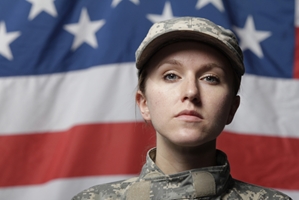The role of women in the military has changed considerably in recent years. Previously, female troops were officially not allowed to serve in combat roles, but as the wars in Iraq and Afghanistan proved that the line between these roles was very blurry, it became readily apparent a change had to be made. Earlier this year then-Defense Secretary Leon Panetta and chairman of the Joint Chiefs of Staff Gen. Martin Dempsey removed these barriers, and this week the military is moving forward with plans to open up significantly more positions to servicewomen, according to The Associated Press.
Women play a vital role
The last 10-plus years of war have changed the way a lot of people view combat, and that includes the role of women. More than 280,000 female troops have served in Iraq, Afghanistan or one of their neighboring countries, and women make up about 14 percent of the active military personnel. Although the Pentagon opened up about 14,500 combat positions to women last year, there were still hundreds of thousands that were not available due to a nearly 20-year-old policy that barred women from serving on ground combat units. However, that is about to change.
Plans in place
Military leaders recently presented Defense Secretary Chuck Hagel with a tentative schedule for opening up new positions to women. For instance, in the Army, leaders say they will have standards set by July 2015 so that servicewomen can train to be Army Rangers. There are also plans to open up channels for women to train to be Navy SEALs by March 2016. Special Operations Command also has plans in place.
Widespread praise
The move has been met with considerable applause from lawmakers and military leaders. Among the most vocal supporters of the change in policy is New York Senator Kirsten Gillibrand, who says the decision will have far-reaching implications.
"This decision finally opens the door for more qualified women to excel in our military and advance their careers, and obtain all of the benefits they have earned," she said in a statement. "Officially recognizing women in combat will strengthen our country both morally and militarily, and create promising opportunities for the brave women who serve our country, and the families that stand by them."

